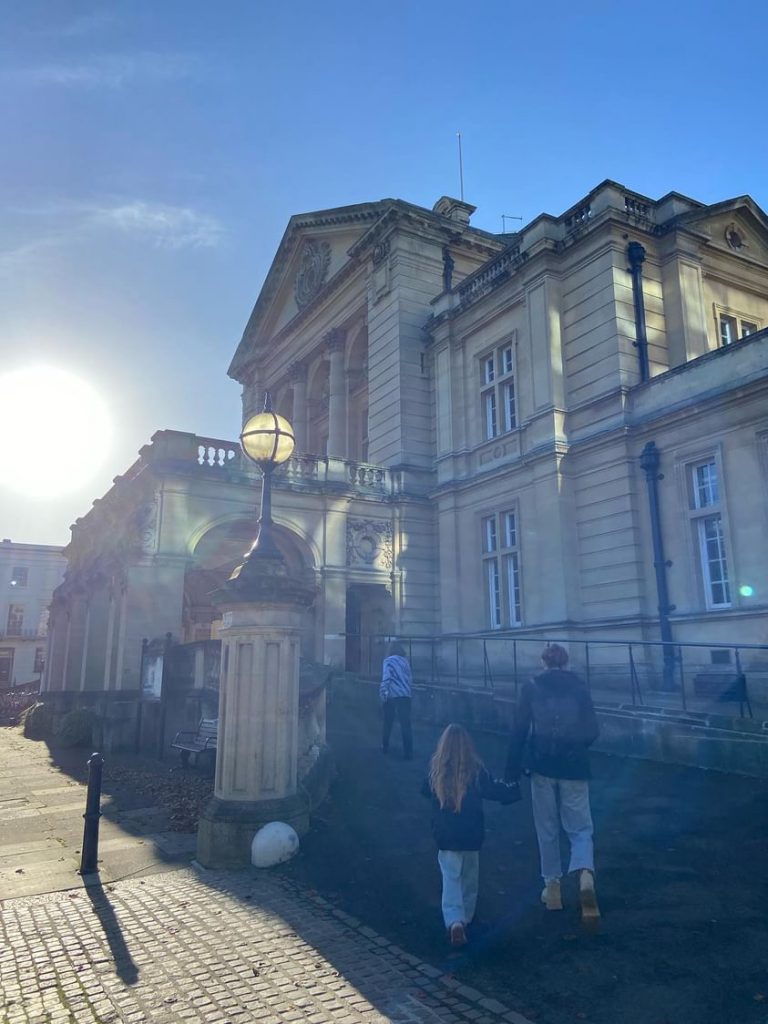Words by Annie Tallis
ÔÇÿI have such a crush on her, but like a friend crush’, I overheard one woman confess in the queue into Cheltenham Townhall. There is a distinct feeling that the over 1000 of us that turned out at 6pm on a Sunday evening feel a similar sort of love for Elizabeth Day. We all wait in anticipation for her words on the final night of Cheltenham Literature Festival.
I smile and think of how Day would respond to this woman’s confession of love, her aptly named book ÔÇÿfriendaholic’ speaks of her own experience of being, as calls it, ÔÇÿaddicted to making friends’, her candid analysis of her own psyche was so incredibly reflective of my own experience that it was almost imperative that I listened to her speak on the topic.
I came across Day in lockdown, during my mandated daily walk. My constant companion was her podcast ÔÇô ÔÇÿHow To Fail’ ÔÇô episodes consist of her speaking to a myriad of celebrities on their various failures. It was, and still is, one of the most uplifting and comforting podcasts I have ever come across. Since those days, I have become enthralled by her books. She spans non-fiction to fiction, each with her own personal and intimate style, a distinctive voice that speaks to your own experience.
Filtering through into the ever-impressive main ballroom in my hometown’s town hall, it’s hard to not feel grateful that I’ve had this architectural masterpiece at my front door for most of my life. In fact, it was one of the first things that Sathnam Sanghera remarked upon when he strode out onto the stage to announce his interviewee. I found it remarkably unique to have a close friend, as Sathnam is to Day, interview the other on the topic as personal as this. There was an air of that each 1000 of us in the audience were just flies on the wall to an intimate conversation between two long-term friends.
They began their conversation by reminiscing on how they met, which turned out to be, hilariously, a failed first date. Their obvious comfort around one-another shone throughout the discussion, and there was raucous laughter that ran rampant around the room in which Day recounted how she felt when Sathnam compared her to a horse only 10 minutes into the date.
Day then continued to talk about how, in her youth she was so desperate for human connection that she began to think every passing person who showed an ounce of kindness to her, meant they wanted to be her best friend. It was only when she realised that instead of spending her time with people that actually meant something to her, close friends and family, she was ÔÇÿwasting her energy’ on ÔÇÿpeople that weren’t even really acquaintances’.
Sathnam then queried, if there was a particular event that prompted this change in attitude. that prompted this change in attitude. What excited me most about this answer was that it meant she began to talk about one of my favourite authors who is a huge influence to me. Emma Reed is Elizabeth Day’s best friend, and they host ┬áthe podcast ÔÇÿBest Friend Therapy’ together. In which they discuss different psychoanalysis techniques but with a more human approach. Day said that the moment she knew ┬áshe needed to reassess how she viewed her friendships was when Emma gave birth, she still managed to make time for herself, Day then went on to say ÔÇÿEven if she only had five, ten minutes she made sure to text me asking if I’d like to pop over for a cup of coffee. I knew that it was vital to Emma’s mental health and that I was an escape but also it made me feel so valued that she was thinking of me in that way. I knew I wasn’t treating others how Emma was treating me and so I wanted to shift that’. ┬áDay’s genuine love and respect for the people that she chose to be friends with and spend her energy on was evident in her body language and words. It was truly inspiring how she understood the psychology behind friendship and thus how to act and how to treat your friends to make it the most beneficial for both parties. ┬á



